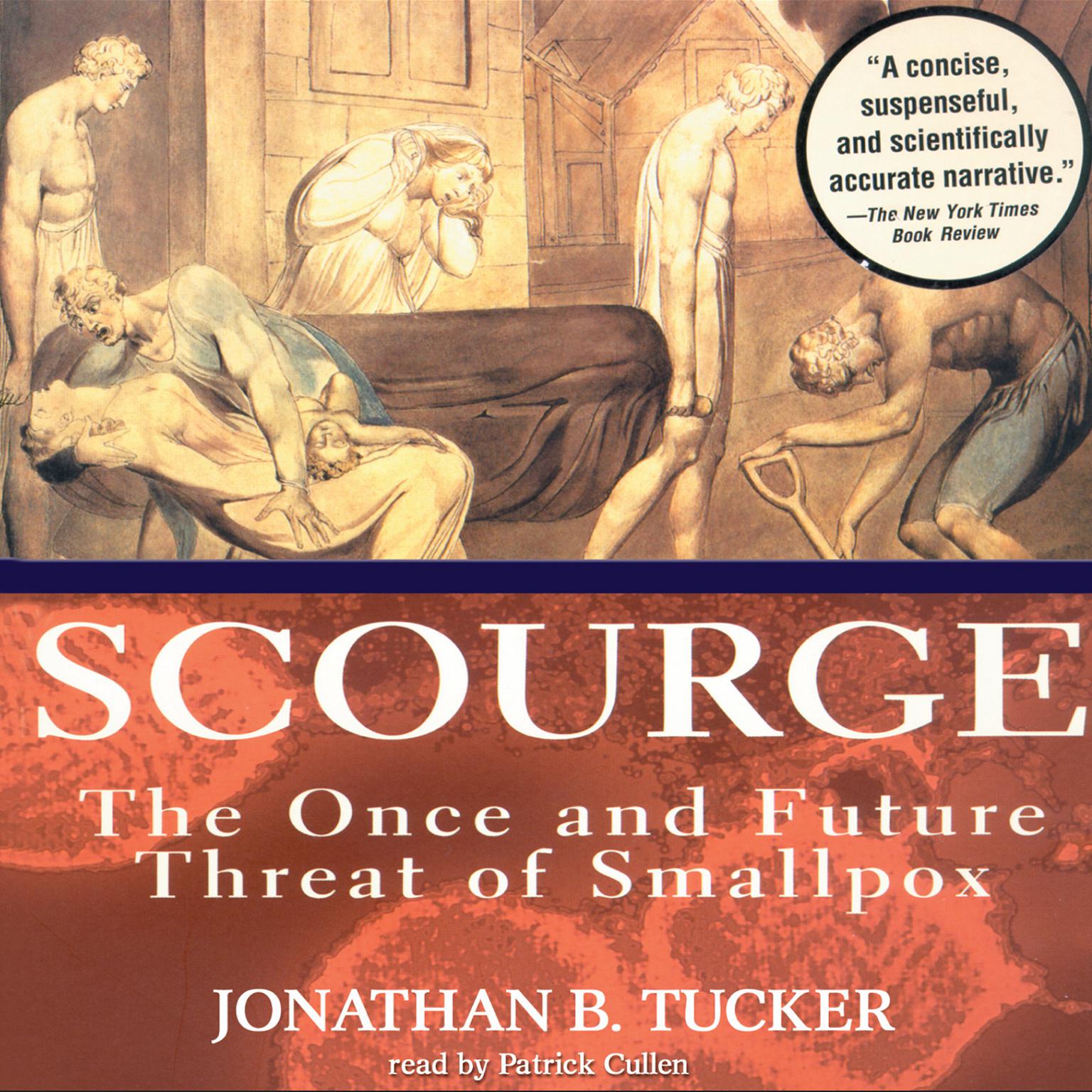 Play Audiobook Sample
Play Audiobook Sample
Scourge: The Once and Future Threat of Smallpox Audiobook
 Play Audiobook Sample
Play Audiobook Sample
Quick Stats About this Audiobook
Total Audiobook Chapters:
Longest Chapter Length:
Shortest Chapter Length:
Average Chapter Length:
Audiobooks by this Author:
Publisher Description
Smallpox, the only infectious disease to have been eradicated, was one of the most terrifying of human scourges. It covered the skin with hideous, painful boils, killed a third of its victims, and left the survivors disfigured for life. In this riveting, often terrifying look at the history of smallpox, Jonathan B. Tucker tells the story of this deadly disease, the heroic efforts to eradicate it worldwide, and the looming dangers it still poses today.
Beginning in the sixteenth century, smallpox afflicted rich and poor alike, repeatedly altering the course of human history. No vaccine existed until 1796, when an English country doctor named Edward Jenner developed one. While this vaccination banished the virus from industrialized countries, smallpoxremained a major cause of death in the developing world. Finally, in 1967, the World Health Organization launched an intensified global campaign to eradicate smallpox worldwide. By early 1978, the disease had been eliminated.
During the 1980s, Soviet leaders cynically exploited the world's new vulnerability to smallpox by mass-producing the virus as a strategic weapon. In recent years, concern over the possible return of smallpox has taken an even greater urgency with the realization that clandestine stocks of the virus may still exist.
Download and start listening now!
"Great history of the disease, and of the tireless work of the World Health Organization in eradicating it from humanity. Also touches upon the stubbornness of our governments to finally get rid of the remaining samples, and the threats this presents."
— Dean (4 out of 5 stars)
Quotes
-
“The book is difficult to put down.”
— Publishers Weekly -
“Tucker provides an engrossing look at the continuing debate over the destruction of smallpox.”
— Library Journal -
“Tucker describes in detail the long struggle over maintaining research stocks of the virus—an effort that rather leaves smallpox as a terrorist weapon looming threateningly over this well-written, thoroughly documented book.”
— Booklist -
“A true-life tale of heroes and villains, frighteningly real and marvelously told.”
— Kirkus Reviews
Scourge Listener Reviews
-
" I would have finished this one, and may pick it up again in the future. Interesting and well written, just didn't have the time for it. "
— Casey, 3/15/2010 -
" This is a great look at the history and continuing research of small pox. "
— Reatha, 6/1/2008 -
" A great book about the small pox virus, the history of the vaccine and a little bit about the Soviet bio weapons development program. "
— Tim, 10/22/2007 -
" It's scary to think that any day, some terrorist may turn Smallpox into a weapon, and we'd all be vulnerable again. On the other hand, it shows what this world can accomplish if we are willing to cut through the red tape and work together. "
— Jwjohnsen, 4/1/2006 -
" I'd probably pick this up again if I were in between books, but it wasn't engaging enough to try and renew when it came due during our move last fall. "
— Alison, 10/6/2005 -
" So far at about halfway through, this is just all right. I thought it would have more historical information, but most of the book is about the eradication efforts in the mid-20th Century, which I already was fairly familiar with. So far, I'd pick almost any other pestilence book besides this one. "
— Ellee, 9/11/2004
About Jonathan B. Tucker
Jonathan B. Tucker is an expert on biological and chemical weapons in the Washington, DC office of the Monterey Institute of International Studies. He studied biology at Yale University, received his PhD in political science from MIT, and served in the State Department, the congressional Office of Technology Assessment, and the Arms Control and Disarmament Agency. He is the editor of Toxic Terror: Assessing Terrorist Use of Chemical and Biological Weapons.
About the Narrators
John Lescault, a native of Massachusetts, is a graduate of the Catholic University of America. He lives in Washington, DC, where he works in theater.
John Lescault, a native of Massachusetts, is a graduate of the Catholic University of America. He lives in Washington, DC, where he works in theater.


